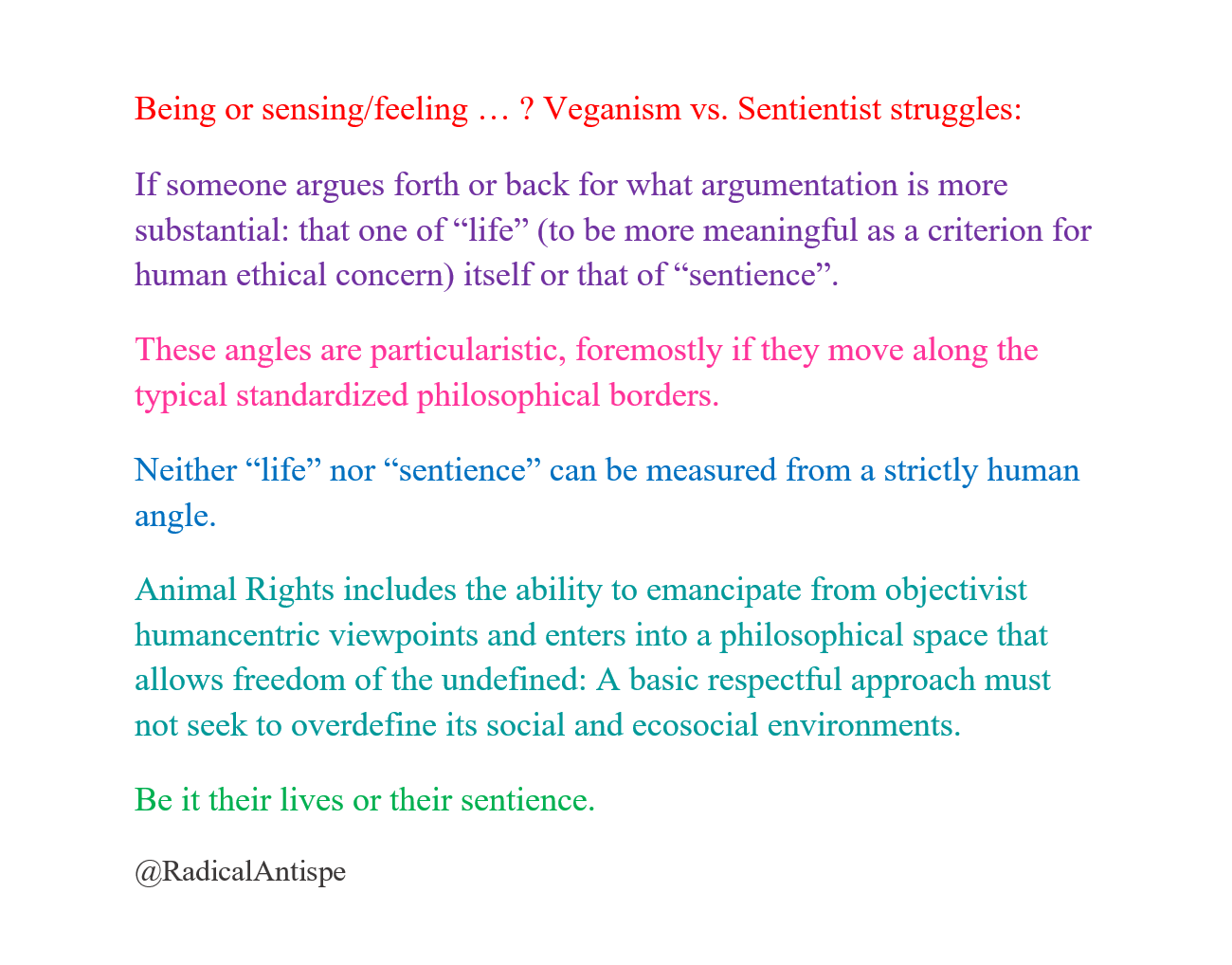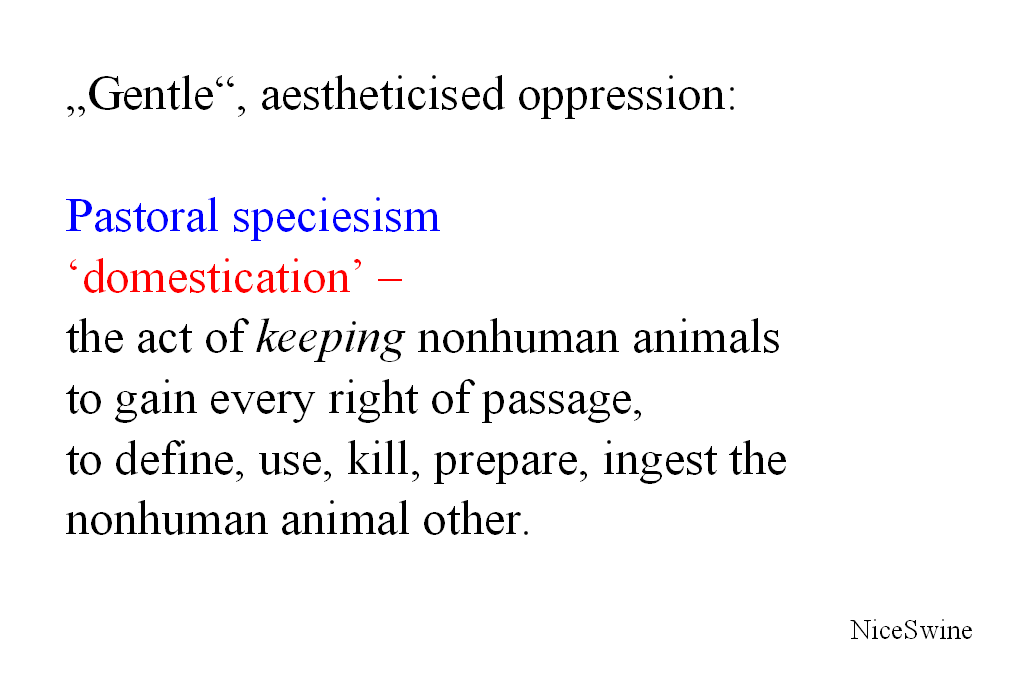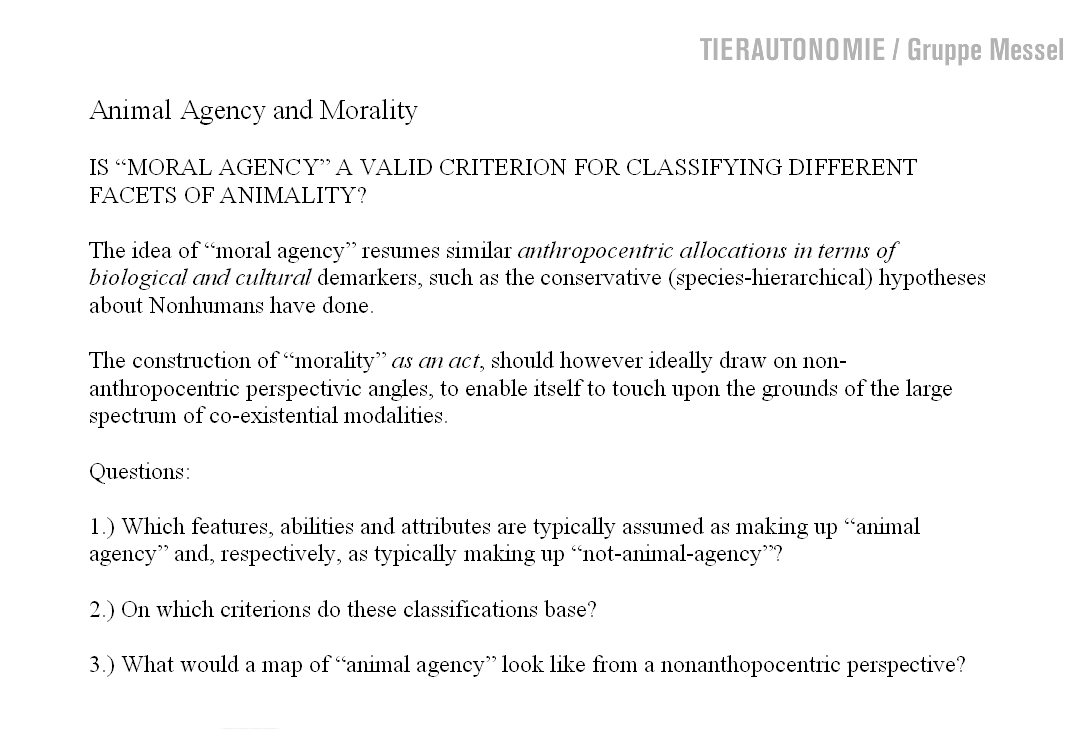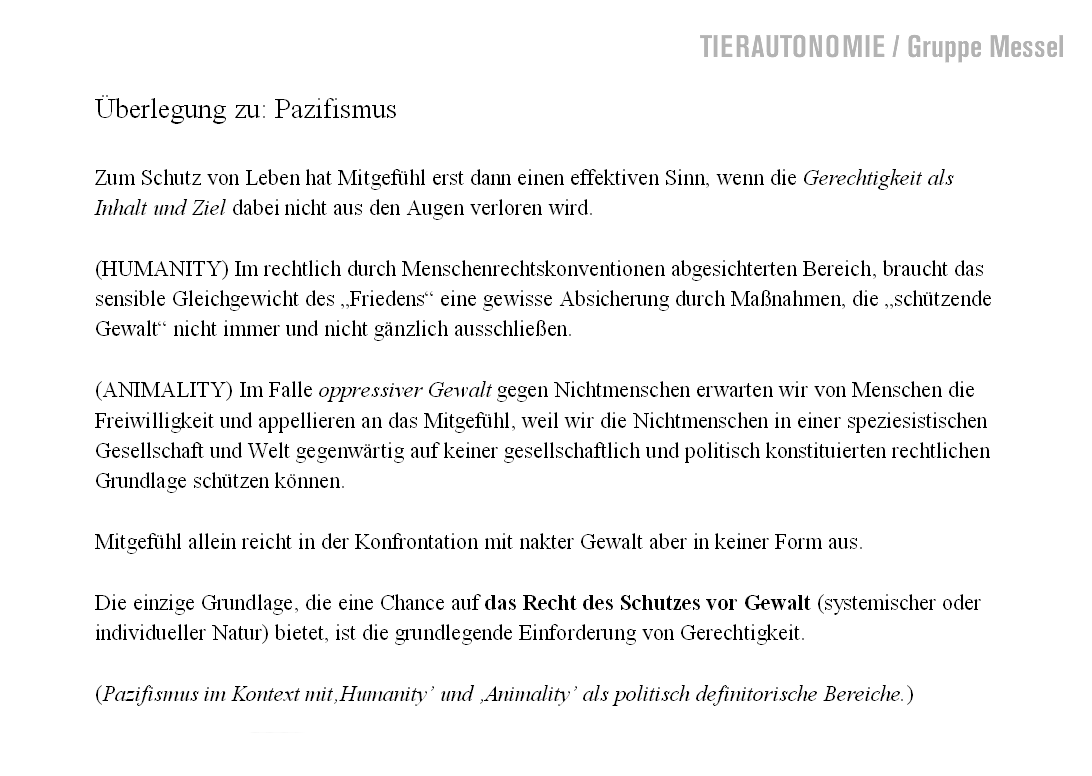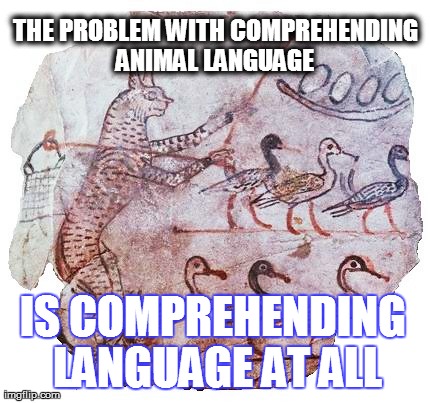
Human society annexes every ‘natural’ space, primarily through societal economic processes.
‘Nonhuman Animal Rights’ thus have to cover all spaces on the globe – within human communities and within the natural environment overall.
In regards to creating a ‚vegan economy’:
1. First of all we should address the history of ‘rule and possession’.
a.) Different economic models have been historically existent. Which components came into play for forming current economical models (i.e. the capitalist economies and socialist inspired economies) in pure economic terms, politically, socially?
b.) Which forms of political rule went along with ‘ownership’ and ‘dominion’ (annexation of ‘nature)? And what created the basis of legitimization in rule, such as in: monarchies, democracies, tyrannies, as grounded for example on: religion, ideology, philosophy?
c.) How did forms of ‘rule’ and ‘authority’ interact with exploitative contractualist agendas such as imperialism, colonialism, nationalism?
An aspect to highlight: Legitimization falters or ends where the ‘entitlement’ for ‘rule and possession’ excludes and comes into conflict with interests / rights of other human beings, other animals and the ‘natural’ realm / ‘nature’.
2. Secondly we should see how ‘economy’, as a societal material construct, and ‘nature’, as an borderless/undefined space, conflict.
a.) What stands at the centre of the conflict between our human-centred economic matrices (as systems of ‘rule and possession’) versus ‘natural’ and autonomous life? What are core reasons for conflict? (The reasons might stand alongside the questions of legitimization.)
b.) Society’s inability for groundbreaking political change, and the inability for change on the private scale (in the individual’s life in society) as being part of society, extends the need for the legitimization of ‘dominion’/’rule’, exploitation and destruction – it otherwise leads to rebellion.
What can be alternative forms of economic societal organization?
3. How does veganism – as entailing some of the key aspects needed to form a pacifist eco-consciousness – offer ways out of economic systems that utilize ‘nature’, nonhumans and “powerless” humans, in different degrees, as resources or as in the case of humans, as partly involuntary collaborators?
a.) Discuss the need for veganism to become aware of its own politicalness, in problem-solving and problem-creating terms.
b.) The core of veganism, taken as a social revolutionary ‘movement’, mainly differs from other liberation movements because of its primary focus on nonhuman animal exploitation and nonhuman animal murder / zoacide … .
Economic ethics or non-ethics:
Where does profiteering from (or/and voluntary collaboration with) ecocide and zoacide mainly begin?
How are humans affected today by the consequences of economically driven ecocide and zoacide, ethically?
How do you think should ethical vegans work against ecocide and zoacide, despite the “vegan revolution’s” minority constellation within society?
